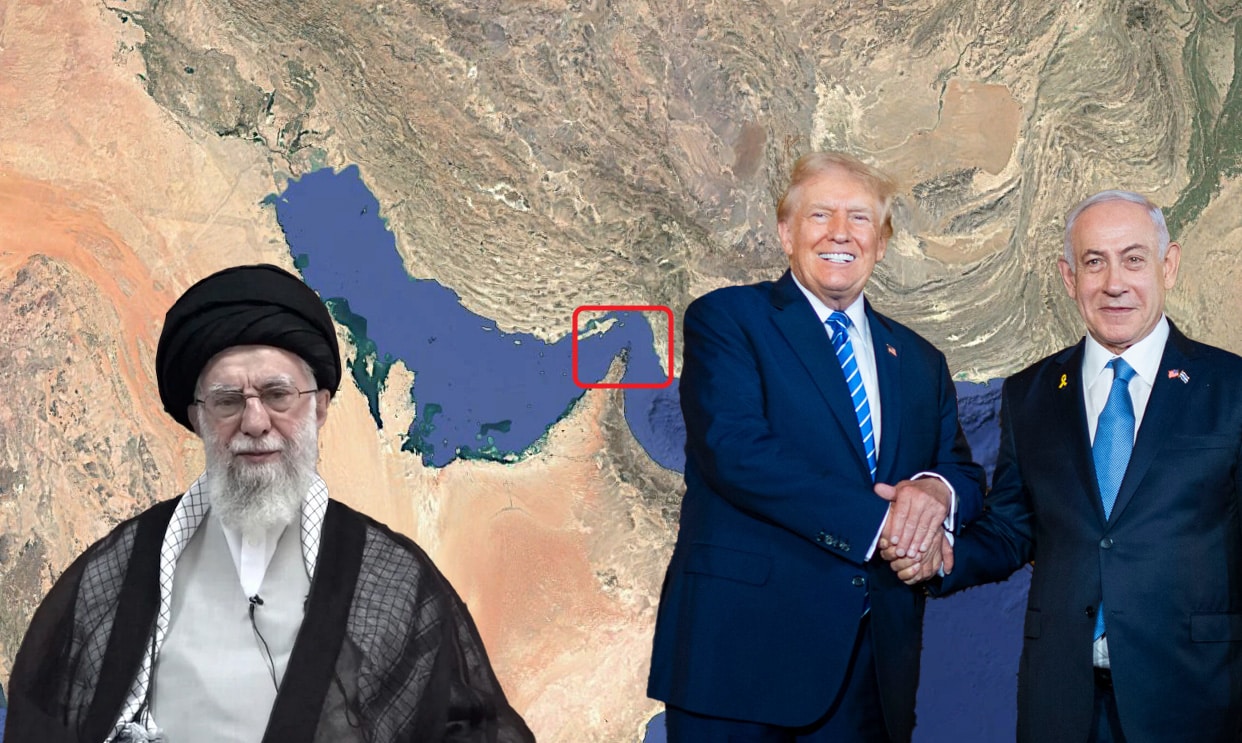Impact of Iran-Israel Conflict and US Airstrikes on the Strait of Hormuz

With escalating tensions between Iran and Israel, particularly following recent U.S. airstrikes on Iranian nuclear facilities, concerns are mounting over the potential closure of the Strait of Hormuz. This critical maritime passage is responsible for transporting about 20% of the world’s oil and gas. Iran’s Parliament has reportedly approved the closure, pending a final decision from the Supreme National Security Council. The implications of such a move could be significant, especially for countries like India, which heavily relies on oil imports.
The Strategic Importance of the Strait of Hormuz
The Strait of Hormuz is a vital maritime corridor connecting the Persian Gulf to the Arabian Sea and extending into the Indian Ocean. This narrow passage, measuring just 21 miles at its narrowest point, is flanked by Iran to the north and the Arabian Peninsula to the south. The navigable channels are limited, extending only two miles in either direction, making it susceptible to blockades and military actions. The strait is crucial for the global economy, as it serves as the primary route for oil vessels departing from Persian Gulf ports. According to the U.S. Energy Information Administration (EIA), approximately 20.3 million barrels of oil and 290 million cubic meters of liquefied natural gas (LNG) were transported daily through this passage in 2024.
Major oil-producing nations, including Saudi Arabia, Iraq, the UAE, Qatar, Iran, and Kuwait, depend on this route for their exports. While disruptions in the past primarily affected Western nations, current tensions could have a more pronounced impact on Asian countries. In 2022, Asian nations received 8% of crude oil and condensate shipments through the Strait of Hormuz, with India, China, Japan, and South Korea accounting for 67% of total flows during the first half of 2023. India, in particular, sources about 90% of its crude oil imports, with over 40% coming from Middle Eastern countries whose exports transit through this critical waterway.
Potential Impact on India’s Oil Supply
India imports approximately 5.5 million barrels per day (bpd) of crude oil, with about 2 million bpd passing through the Strait of Hormuz. Despite these figures, experts believe that India’s diversified import strategy may mitigate potential disruptions. The country has alternative suppliers, including Russia, the United States, and Brazil, which can help maintain supply continuity. Notably, Russian oil shipments are less affected by any disruptions in the Strait, as they utilize alternative routes such as the Suez Canal and the Cape of Good Hope.
India’s primary gas supplier, Qatar, also does not rely on the Strait of Hormuz for its shipments. Additional LNG sources from Australia, Russia, and the U.S. remain accessible regardless of any closure. However, analysts warn that rising tensions in this energy-rich region could lead to short-term price fluctuations, potentially pushing oil prices toward $80 per barrel. Currently, India sources about 40% of its oil from Middle Eastern countries, including Iraq, Saudi Arabia, the UAE, and Kuwait.
In recent months, Russia has emerged as a significant oil supplier to India, with imports surpassing those from Middle Eastern nations. Preliminary trade data indicates that Indian refineries imported between 2 to 2.2 million bpd of Russian crude oil in June, exceeding the combined imports from Iraq, Saudi Arabia, the UAE, and Kuwait. While current supplies remain stable, there are indications of reduced crude loadings from the Middle East, prompting potential adjustments in India’s procurement strategy.
Global Oil Prices and Market Reactions
Following Israel’s recent military actions targeting Iranian facilities, global oil prices have surged. The benchmark Brent crude oil reached $77 per barrel, marking a 10% increase since the onset of hostilities. Analysts from Goldman Sachs predict that prices could rise beyond $90 per barrel if tensions escalate further. Citigroup analysts also suggest that a closure of the Strait of Hormuz could push Brent crude prices close to $90.
The credit rating agency Icra has indicated that any intensification of regional tensions could significantly impact oil prices. Higher oil prices would affect the profits of state-owned retailers in India, such as IOC, BPCL, and HPCL, which have maintained stable retail prices despite previous decreases in international rates. However, market experts believe that the oil markets remain adequately supplied, supported by OPEC’s spare capacity and a pre-conflict global surplus.
Despite aggressive rhetoric from Iranian officials, global security analysts consider a prolonged blockage of the Strait of Hormuz unlikely, given the presence of U.S. naval forces in the region. Any such action would not only disrupt oil exports from Gulf nations but would also hinder Iran’s own export capabilities. The Strait of Hormuz is crucial for Iran, as it handles 96% of its oil shipments, making a self-imposed blockade counterproductive to its interests.
Observer Voice is the one stop site for National, International news, Sports, Editor’s Choice, Art/culture contents, Quotes and much more. We also cover historical contents. Historical contents includes World History, Indian History, and what happened today. The website also covers Entertainment across the India and World.
Follow Us on Twitter, Instagram, Facebook, & LinkedIn

